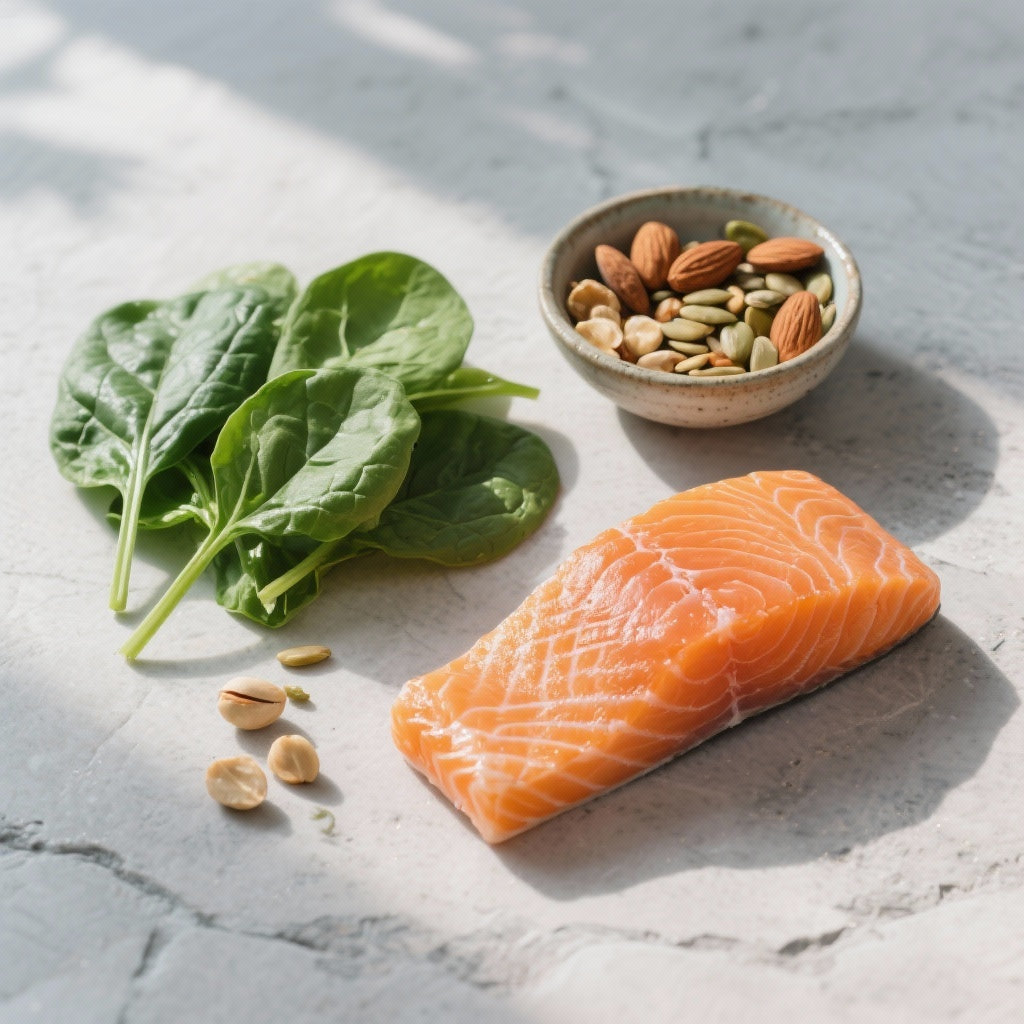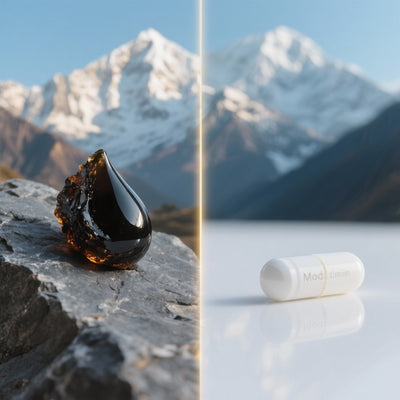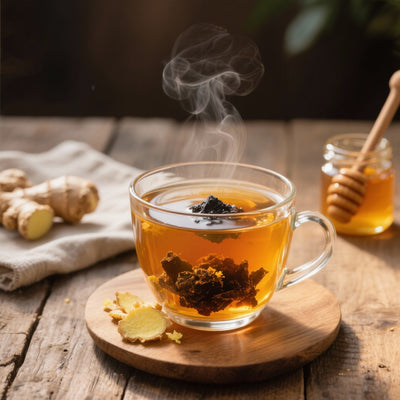8 essential nutrients for building strong immune defenses
As the seasons change, one question is on everyone's lips: how can I avoid getting sick? The answer often lies at the end of your fork. A robust immune system is our first and best line of defense against external threats. While sleep and stress management are crucial, diet plays a leading role. Forget miracle cures; building strong immunity is a marathon, not a sprint.
In this article, we'll explore in depth the eight essential nutrients that act as the pillars of your defenses. We'll see why they're crucial, how they work together, and, most importantly, which foods contain them to strengthen your body from within. Get ready to transform your plate into a true protective shield.
1. Vitamin C: The Essential Antioxidant Shield
When we think of "immunity," vitamin C is often the first thing that comes to mind, and rightly so. This powerful antioxidant is essential for numerous immune processes. It stimulates the production and function of white blood cells, the frontline soldiers that hunt down and destroy pathogens.
Its key role in the organism
Vitamin C, or ascorbic acid, helps protect immune cells from the oxidative stress they generate while fighting infections. Think of it as a protective vest for your immune system. Furthermore, it's vital for skin health, our first physical barrier against microbes. It contributes to collagen production, ensuring the integrity of this barrier.
Your best sources of Vitamin C
While oranges are well-known, other foods are even richer in vitamin C:
- Red bell pepper: A real vitamin C powerhouse, much more concentrated than citrus fruits.
- Kiwi: Just one fruit can cover your daily needs.
- Broccoli and Brussels sprouts: Green vegetables that combine fiber and antioxidant power.
- Berries: Strawberries, blackcurrants, and blueberries are delicious and effective.
2. Vitamin D: The Solar Regulator of Immunity
Nicknamed the "sunshine vitamin," vitamin D plays a far more complex role than simply maintaining bone health. It acts as an immune system modulator, helping to calm excessive inflammatory responses while strengthening our ability to fight infections. A deficiency is often associated with increased vulnerability to respiratory infections.
"Vitamin D is not just a vitamin, it is a prohormone that orchestrates thousands of functions in the body, including the adaptive immune response."
A discreet but powerful conductor
Vitamin D activates receptors on most immune cells, particularly T lymphocytes. It helps the body produce antimicrobial peptides, molecules capable of directly neutralizing bacteria and viruses. By regulating inflammation, it prevents our system from overreacting, which is crucial for preventing autoimmune diseases.
Your best sources of Vitamin D
Sun exposure remains the primary source, but diet can help:
- Oily fish: Salmon, mackerel, sardines are champions of vitamin D.
- Cod liver oil: A traditional and extremely concentrated source.
- Eggs: The egg yolk contains a significant amount of it.
- Mushrooms (exposed to UV): Some producers expose mushrooms to UV light to increase their vitamin D content.
3. Zinc: The Guardian of the Immune Fortress
Zinc is a fundamental trace element for the development and function of immune cells. Even a slight zinc deficiency can significantly weaken our defenses. It is involved in the production of new immune cells and in communication between them.
The indispensable communicator
Zinc acts as a cofactor for over 300 enzymes in the body, many of which are involved in the immune response. It is crucial for the maturation of T lymphocytes and for the production of antibodies by B lymphocytes. Without zinc, the coordination of the immune defense is compromised.
Your best sources of zinc
- Oysters: By far the richest food source of zinc.
- Red meat and poultry: Sources that are well absorbed by the body.
- Legumes: Lentils, chickpeas and beans are good plant-based options.
- The seeds: Pumpkin, sesame and hemp seeds are particularly rich.
4. Selenium: The Strategic Antioxidant
Less well-known than the others, selenium is a trace element with significant antioxidant properties. It works in tandem with vitamin E to protect cell membranes from oxidative damage. It also plays a role in regulating inflammation and the immune response.
The cell protector
Selenium is a key component of selenoproteins, enzymes that help reduce oxidative stress. Adequate selenium levels support a faster and more effective immune response, particularly against viruses. It helps inhibit viral replication and limit mutations.
Your best sources of Selenium
- Brazil nuts: Just one nut can be enough to meet your daily needs! Consume in moderation.
- Seafood and fish: Tuna, sardines, and shrimp are excellent sources.
- Eggs and poultry: Easy to incorporate into the daily diet.
5. Iron: The Fuel of Immune Cells
Iron is essential for transporting oxygen in the blood, but its role doesn't stop there. It is vital for the proliferation and maturation of immune cells, particularly lymphocytes. Iron deficiency, or anemia, is directly linked to weakened immune function.
Defense energy
Immune cells have a very active metabolism when fighting infection and require a lot of energy and oxygen. Iron is central to this process. However, balance is crucial: an excess of iron can also feed certain pathogens. It is therefore important to have an adequate, but not excessive, intake.
Your best sources of iron
- Heme iron (better absorbed): Red meat, black pudding, offal.
- Non-heme iron: Lentils, spinach, tofu, sesame seeds.
Tip: Consume your non-heme iron sources with a source of vitamin C (like a squeeze of lemon juice) to increase absorption tenfold.
6 & 7. Vitamins A and E: The Protective Duo for Membranes
These two fat-soluble vitamins often work together to protect the integrity of our physical and cellular barriers.
Vitamin A: The guardian of mucous membranes
Vitamin A is crucial for maintaining the health of the mucous membranes of the respiratory and digestive tracts. Healthy mucous membranes form an effective barrier that prevents pathogens from entering the body. It is also known as the "anti-infective" vitamin. It is found in the form of retinol in animal products (liver, eggs) and as beta-carotene (a precursor) in brightly colored vegetables (carrots, sweet potatoes, spinach).
Vitamin E: The antioxidant of cell membranes
Vitamin E is a powerful antioxidant that protects the membranes of immune cells from damage. This protection is particularly important for long-lived cells, such as certain lymphocytes. It is found primarily in vegetable oils, nuts (almonds), seeds (sunflower), and avocados.
8. Probiotics: Allies of the Gut, Center of Immunity
Although not nutrients in the strictest sense, probiotics are live microorganisms that play such a fundamental role that it's impossible not to mention them. Approximately 70% of our immune system resides in our gut. A balanced gut microbiota is therefore synonymous with effective immune defenses.
The balance of the microbiota
The good bacteria in our gut "educate" our immune system, helping it distinguish friend from foe, and produce compounds that strengthen the intestinal barrier. They compete with pathogenic bacteria for nutrients and space, thus limiting their proliferation.
Your best sources of probiotics
- Yogurt and kefir: Fermented dairy products rich in good bacteria.
- Sauerkraut (unpasteurized) and kimchi: Tasty fermented cabbages.
- Kombucha: A fermented tea-based beverage.
Conclusion: A varied diet for a strengthened immune system
As you've probably gathered, there's no single miracle nutrient, but rather a complex synergy between many factors. The key to a robust immune system lies in a varied, colorful diet rich in whole foods. By regularly including sources of these eight essential elements, you give your body the best tools to defend itself effectively.
Remember that nutrition is a cornerstone, but it must be supported by a healthy lifestyle. For more tips on overall well-being, explore our lifestyle blog .
Frequently Asked Questions
What is the most important nutrient for immunity?
It's difficult to name just one, as they work together. However, vitamin D and zinc are often cited for their role as central regulators. A deficiency in either can have significant repercussions on the entire immune system.
Is it possible to boost your immune system quickly?
The term "boost" is a bit misleading. You can't "overload" your immunity overnight. It's more about "supporting" and "strengthening" it over the long term through healthy lifestyle habits and a balanced diet. Consistency is key.
Are dietary supplements necessary?
A varied diet should cover most of your needs. However, supplementation may be beneficial in certain cases, such as for vitamin D in winter in regions with little sunshine, or in cases of deficiency confirmed by a healthcare professional. Always consult a doctor before starting any supplementation. For more information, read the articles on our blog .







